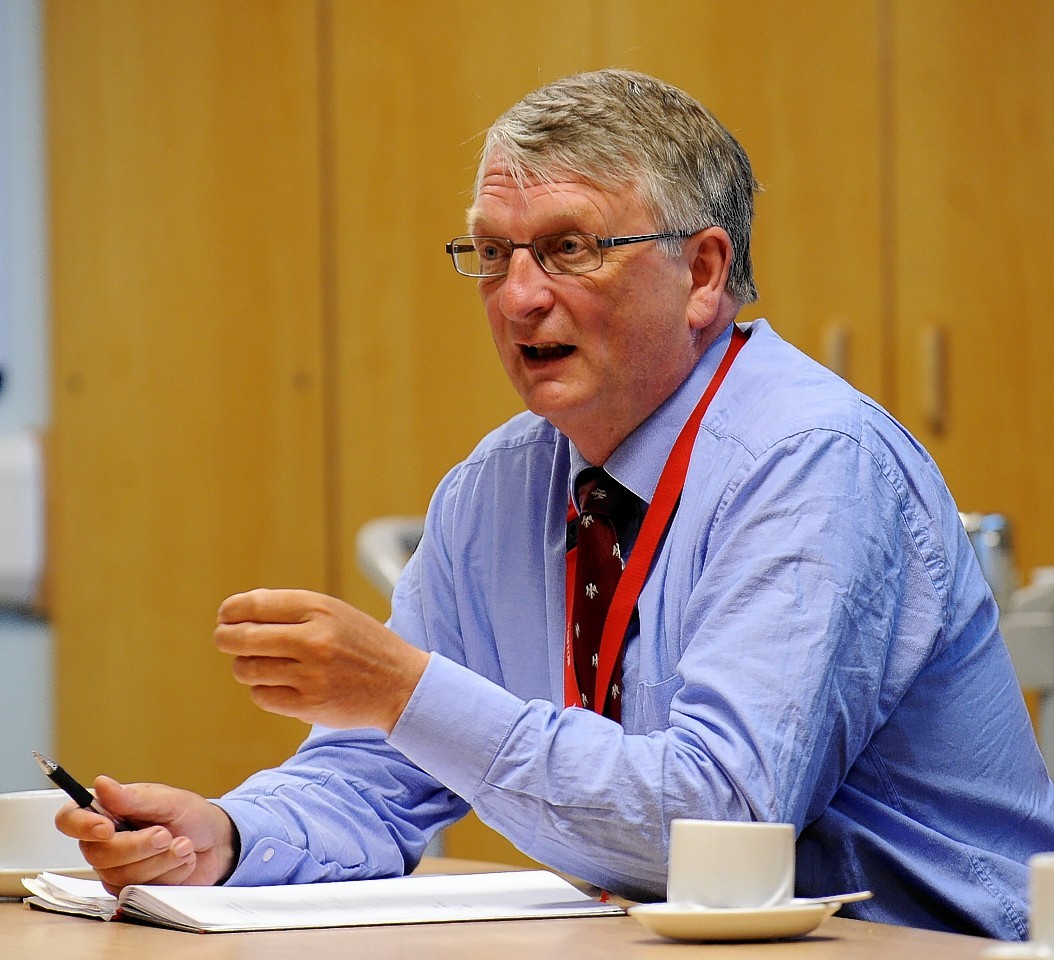NHS Highland’s new boss has hit back at the board’s critics – and insisted the region is ready to lead the country through the “challenging times” ahead.
David Alston – appointed as the troubled health board’s new chairman yesterday – dismissed concerns raised about its financial management as he looked forward to its “exciting” future.
The veteran councillor said he believed the north could blaze a trail for other NHS boards to follow, as he warned the area would be “hit first” by looming demographic pressures.
And he promised there would be “important discussions” in coming years over a potential new flagship hospital to replace Inverness’s ageing Raigmore.
Mr Alston, a former deputy leader of Highland Council and published historian, takes the reins at NHS Highland following criticism in recent years of the board’s multimillion pound budget overspends.
At Holyrood yesterday, MSPs heard evidence that the board had “strengthened its financial management” – but remained millions of pounds in the red.
But last night Mr Alston was in a bullish mood after his appointment was announced, insisting he did not view the overspends as a “significant issue for the future”.
The Liberal Democrat councillor, who had already announced that he would not seek re-election to the local authority in 2017, will take over from Garry Coutts, who stands down as the health board’s chairman in March 2016.
Speaking to the Press and Journal, Mr Alston said he was optimistic that many of the board’s challenges could be turned into opportunities.
“I’m delighted to have been offered this appointment,” he said.
“There are clearly challenging times ahead for health authorities in Scotland, and particularly in Highland, but it’s also an exciting time.
“The work that is going on with the integration of health and social care in Scotland is important, and I think Highland is ahead in that.
“I think we’re a leading health board in Scotland in terms of improvement in services.
“I think that means we’re well-placed to face the challenges ahead and ensure we have a safe, compassionate health service that is creative and innovative in finding new ways in the development of services.
Mr Alston, who has been appointed for a four-year term and will receive a salary of £29,936, said the Highlands would have to adapt services to meet the needs of a population that is growing older, and often living in remote areas.
“Money will be tight but I don’t think that’s the key issue. The key issue is the ageing population – though it’s good news, we’re living longer,” he said.
“We’re going to have to get better at integrating primary care and secondary care – what happens in communities and what happens in hospitals.
“That’s a challenge everyone in Scotland and the UK will face, but it hits us first. We’re the front-runners in this.
“It’s an exciting place to be in terms of healthcare. I think we can be a leader in Scotland and in the UK.”
Mr Alston played down financial concerns which had emerged in recent years after the board sought a £2.5million loan from the Scottish Government in 2012-14 to help it break even.
“In the great scheme of things these were very small amounts of money in a big budget. In other parts of the public sector, local authorities, they wouldn’t have made the news, because local authorities can carry over overspends,” he said.
“There was never any serious issue about financial management. I don’t see this as a significant issue for the future.
“There certainly will be financial challenges ahead and these will be common to Scotland.”
The Scottish Government last month announced plans for a new £16million orthopaedic hospital for the Highland capital.
Health board members have also previously discussed how Raigmore Hospital in Inverness may soon need to be replaced. The project could take a decade and cost £450million.
Asked about replacing Raigmore, Mr Alston said: “I think the great news is about the elective care hospital, that will take significant pressure off Raigmore.
“We have to constantly look at what changes we can make. We would all like to see state of the art hospitals for all sorts of reasons. These will be important discussions.”
